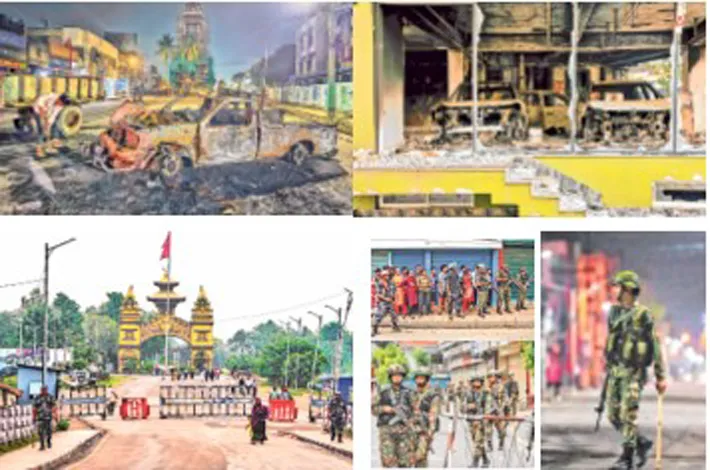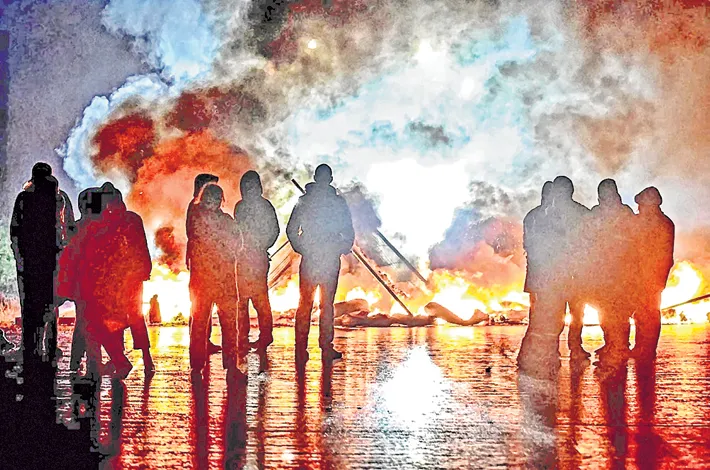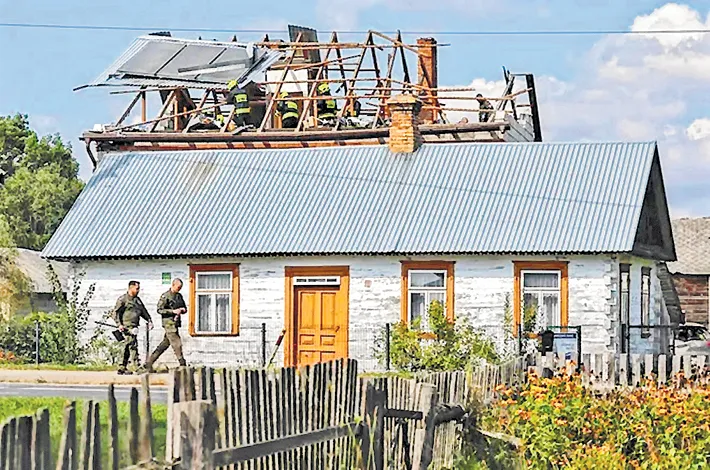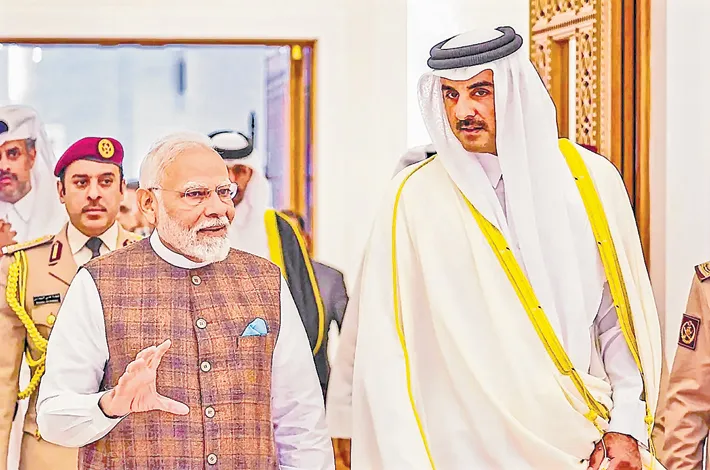Canada admits to Khalistan Groups funding terror!
08-09-2025 12:00:00 AM

Why is the Govt not cracking the whip?
Canada’s dilemma
- Pro Khalistan terror groups are a security threat to Canada but the Government is a mute spectator right now. There is a need to look into combat terror financing.
- Trudeau’s Government did not support India. Experts urge Canada to crack down on these groups and share intelligence with India to address the global security challenge posed by terror financing.
- Some experts remained sceptical about the extent of action Canada will take. One strategic affairs analyst noted that these groups are deeply embedded in Canadian politics, enjoying tacit support from parts of the Sikh diaspora and political patronage, particularly from the New Democratic Party.
A recent report from Canada’s Finance Ministry has revealed significant vulnerabilities in the country’s approach to combating terror financing, spotlighting loopholes that allow extremist networks to move funds with ease. The report highlights how charities, informal money transfers, and legitimate businesses are being exploited to fund terrorist activities, raising serious concerns about Canada’s national security and its international relations, particularly with India. For years, India has accused Canada of providing political, financial, and ideological space to Khalistani groups operating on its soil.
The report appears to validate these concerns, acknowledging the presence of such groups and their unchecked fundraising activities. India has repeatedly flagged these outfits for raising funds, spreading propaganda, and intimidating Indian diplomats, linking them to violent attacks and plots beyond Canada’s borders. The revelations have intensified scrutiny on Canada’s historical hesitance to act decisively, often attributed to domestic political compulsions and diaspora influence. A former diplomat termed this as a major vindication of India’s position and questioned how a vibrant multi-party democracy like Canada could allow extremist funding to influence its elections? He also remarked that it raised troubling questions about the integrity of their democratic process.
The report comes at a time when Canada-India relations are showing signs of improvement under the new administration of Prime Minister Mark Carney. Following years of strained ties, particularly under former Prime Minister Justin Trudeau, who was accused of denying India’s concerns, the acknowledgment of these vulnerabilities is seen as a potential turning point. At the same time, foreign affairs experts expressed satisfaction that the current Canadian dispensation is more transparent and honest than the previous one but at the same time they had a cautious optimism about a positive impact on bilateral ties. However, some remained skeptical about the extent of action Canada will take. One strategic affairs analyst noted that these groups are deeply embedded in Canadian politics, enjoying tacit support from parts of the Sikh diaspora and political patronage, particularly from the New Democratic Party. He also expressed doubts that these organizations could be part of a global network, hobnobbing with groups like Hamas and Hezbollah, using crowd funding and charity fronts. He emphasized the need for close monitoring, warning that these groups cannot operate in isolation without affecting Canada’s internal security.
Another foreign affairs expert suggested that the report reflects Canada’s growing concern about its own sovereignty, rather than a genuine shift in policy toward India’s concerns. He mentioned that those groups have become so powerful that they now threaten Canada’s internal security. He cautioned against expecting Canada to fully align with India’s fight against these organizations, suggesting that Ottawa may prioritize its domestic stability over international cooperation. He criticized the Canadian political establishment for historically turning a blind eye to Khalistani activities, citing the unresolved 1985 Air India Flight 182 bombing, which killed 331 people. The report also raises questions about the role of international bodies like the Financial Action Task Force (FATF), which has seemingly overlooked Canada’s vulnerabilities. Observors expressed their surprise that FATF had no idea about this, hinting at a complex ecosystem involving Western intelligence agencies that may have tacitly supported these groups.
As Canada-India relations see a potential reset, with new high commissioners appointed and efforts to revive trade partnerships, the report underscores the need for concrete action. Experts urge Canada to crack down on these groups and share intelligence with India to address the global security challenge posed by terror financing. However, with these networks deeply entrenched, the path forward remains complex, requiring sustained diplomatic and security efforts to ensure accountability and prevent further escalation.








